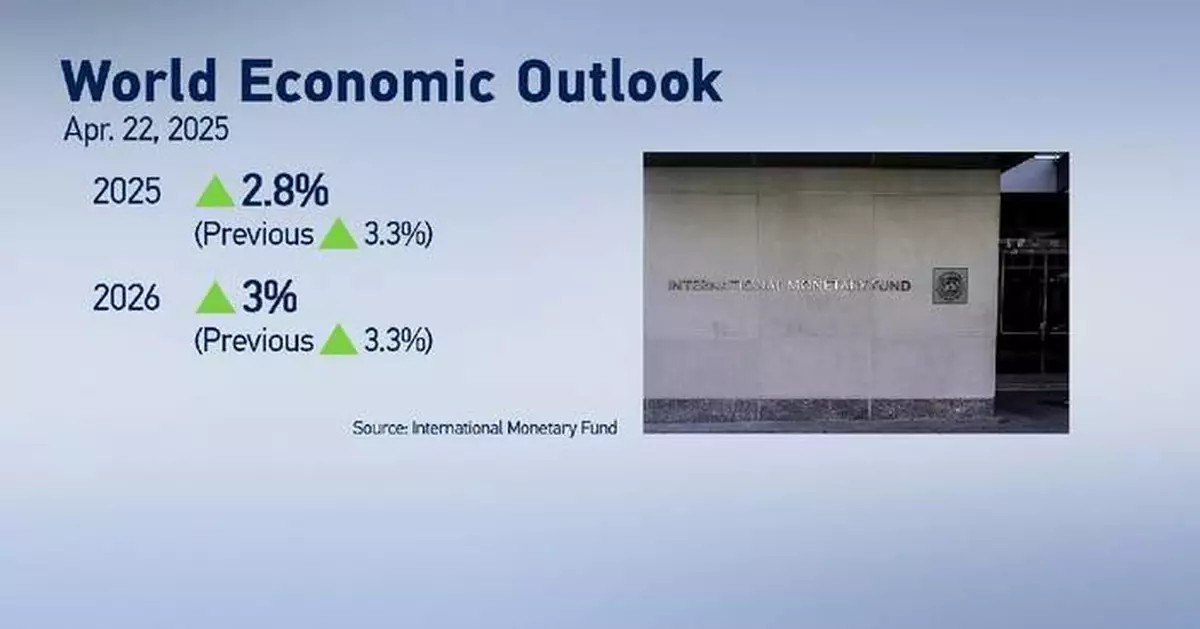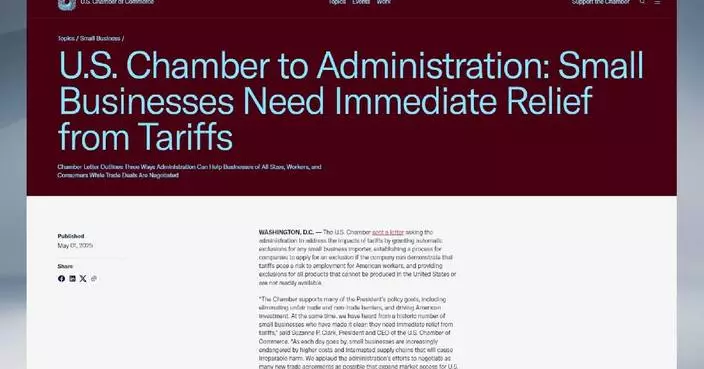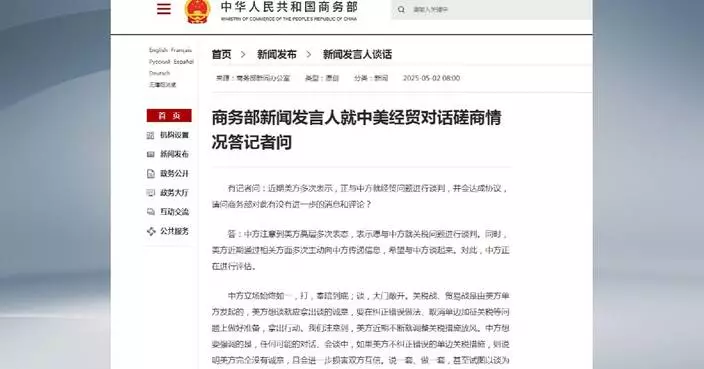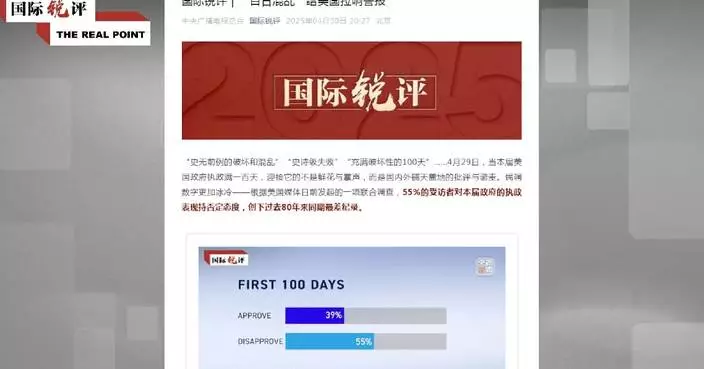The International Monetary Fund (IMF) has significantly lowered its global economic growth projections, citing escalating trade conflicts and heightened policy uncertainty, according to its latest World Economic Outlook report released Tuesday.
The IMF now forecasts global growth at 2.8 percent for 2025, a sharp 0.5 percentage points reduction from its January estimate, with a further slowdown to 3 percent projected for 2026.
The downward revision comes as the United States' April 2 announcement of sweeping "reciprocal tariffs" has pushed global tariff rates to century-high levels, creating what the report describes as "a major negative shock" to worldwide economic expansion.
Advanced economies face particular headwinds, with collective growth expected at just 1.4 percent in 2025 and 1.5 percent in 2026. The United States saw the most dramatic revision -- its 2025 outlook slashed by 0.9 points to 1.8 percent due to mounting policy uncertainty, intensifying trade tensions, and softening domestic demand. The eurozone's projection fell 0.2 points to 0.8 percent.
Emerging markets and developing economies, while maintaining relatively stronger growth at 3.7 percent (2025) and 3.9 percent (2026), still suffered downgrades from previous estimates, with the IMF attributing much of the slowdown to ripple effects from U.S. trade measures. The latest forecast for China's growth in 2025 dropped 0.6 percentage points to 4 percent.
The report notes global inflation is expected to moderate, though the pace of decline may be slower than previously anticipated. This combination of sluggish growth and persistent price pressures presents policymakers with complex challenges as they attempt to balance economic support against inflation containment.
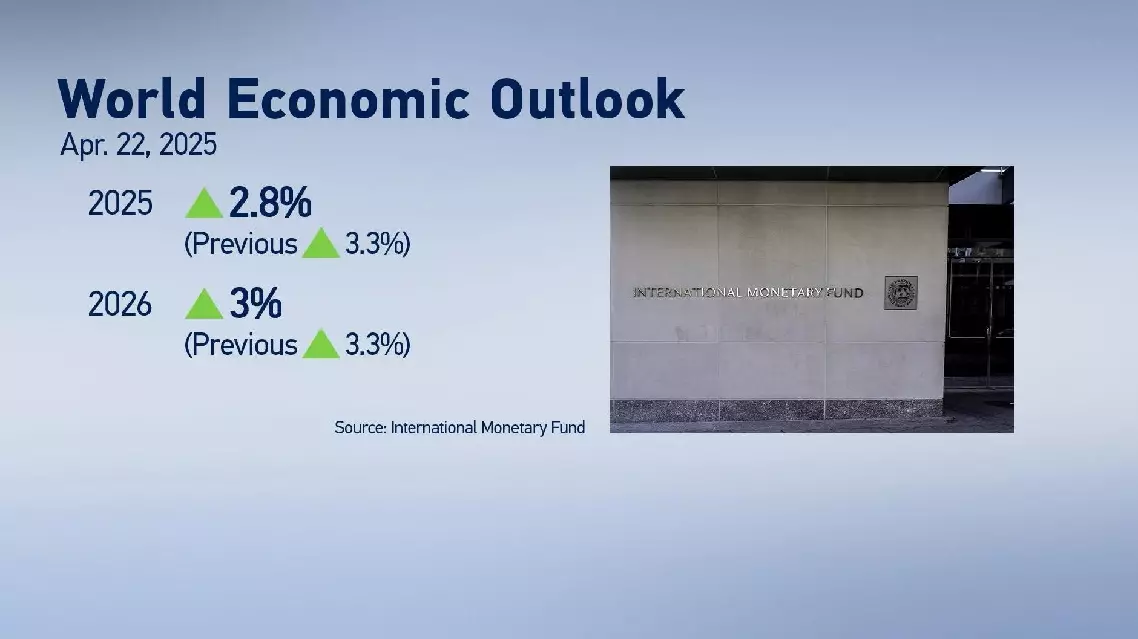
IMF downgrades global growth forecast to 2.8 pct in 2025 amid increased tariffs
Cuba held rallies and marches in all provinces on Thursday to celebrate the May Day International Workers' Day, with workers unions, citizens, and global visitors gathered at Havana's Revolution Square for a grand parade.
The May Day parades have been an annual tradition in the country since the victory of the 1959 revolution. For this year, the parades called for solidarity amid global economic turbulence and higher U.S. sanctions.
Started in the early morning, enthusiastic marchers and union workers grouped in blocs representing different unions, holding banners with all kinds of slogans to show support for the government and celebrate the national event.
The parade was presided over by top Cuban government and Communist Party leaders including former President Raul Castro, current President Miguel Diaz-Canel, and Premier Manuel Marrero.
In his remarks at the rally, Cuban Workers' Confederation leader Ulises Guilarte said that this year's celebration took place amid a complex world scenario, marked by the rise of a new and dangerous imperialist offensive. However, Cuban people will keep struggling for a better future, noted Guilarte.
The island country has long been coping with an economic crisis marked by high inflation, shortages, and U.S. sanctions, but the crowds showed their support for the government with the enthusiastic march.
"The revolution remains alive, our revolution will keep advancing; and despite the difficulties we are facing, we are still living a happy life, and we are eager to reach new and nice achievements for our nation," said Lucia Rodriguez, a local demonstrator.
More than 1,000 social activists from around the world also joined the celebration at the Revolution Square, demonstrating against the U.S. trade embargo on Cuba.
"I can imagine, due to the blockade, that Cuba needs to have strong relationships of solidarity, so I'm so happy I can be here, and be part of those relationships," said a Canadian activist during the event.
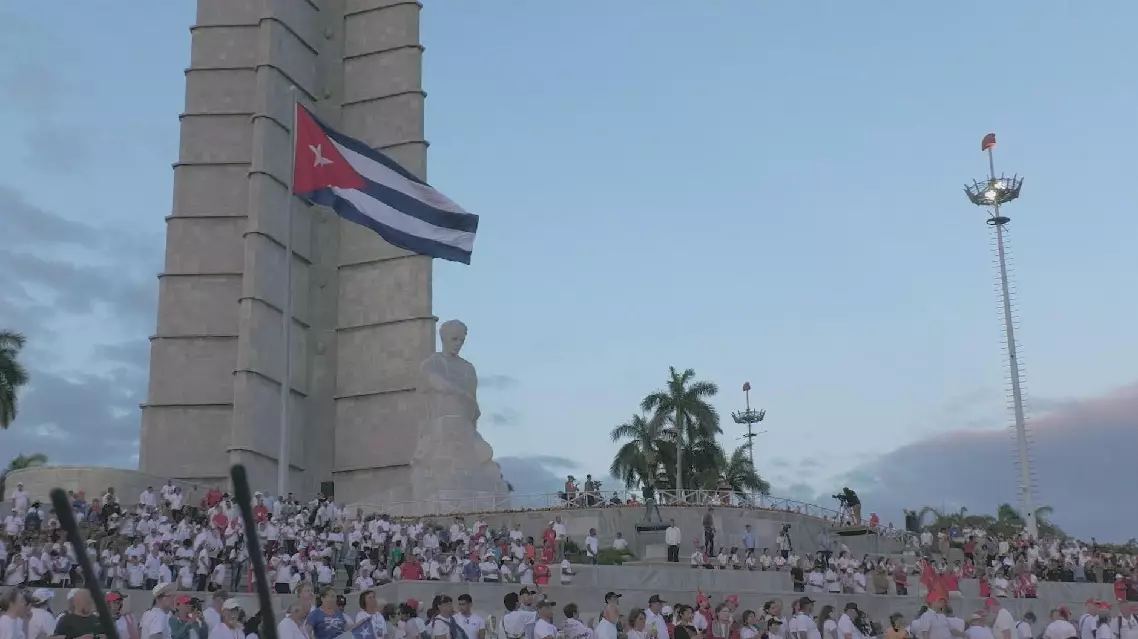
Cuba holds rallies, parades to celebrate International Workers' Day



